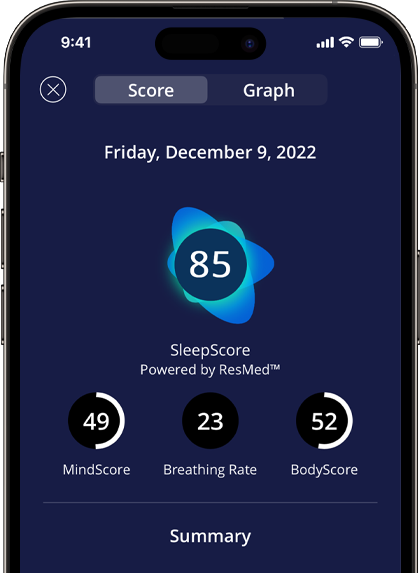How to Practice Mindfulness for Better Sleep

What is mindfulness?
Mindfulness is a focus on the present while being aware of your moment-to-moment thoughts, emotions, physical sensations, and environment. This is done by paying attention to experience without judging how you’re feeling or what you’re thinking about. This practice involves gently noticing and accepting whatever you are experiencing. Mindfulness can be practiced almost anywhere and anytime. You can mindfully take a walk, mindfully eat a meal, or mindfully pet your dog – the possibilities are endless. If you’re used to multitasking without paying attention to one particular thing, or if you spend a lot of time feeling distracted, this might be a new experience for you. Give it a try and see how you feel!
How does it help with overall mental health?
Mindfulness can help with wellness because focusing on the present moment is incompatible with worrying about the future or dwelling on the past. Take a moment now to remember times in your life when you felt anxious or depressed. When you were anxious, your thoughts were probably oriented toward what you feared might happen in the future. When you felt depressed, you might have been ruminating over upsetting experiences that happened in the past. In contrast, when you focus on the present moment, you are giving yourself a break from all those thoughts about the past and the future. Instead, you bring your full attention to the present moment. At times when practicing mindfulness, your mind will wander away from the present moment. Don’t be hard on yourself about it; just lightly notice that you had a wandering thought and then return your awareness to your experience in the present moment.
Can it help with sleep too?
Mindfulness can be a very effective technique to help with sleep, especially for those of us who have racing thoughts as we try to fall asleep or when we wake up during the night. By calming the mind, it’s possible to reach a mental and physical state perfect for sleep.
A few minutes of mindfulness practice before bed can help ease your mind and body to get ready for sleep.
Distracting thoughts will pop up as you practice; allow yourself to have them and do your best not to get too frustrated or overwhelmed when they do. Try putting a label on them before bringing your mind back to the present moment. For example, if you’re wanting to wind down for sleep but your to-do list for tomorrow is popping into your head, notice that your brain is planning for the future. Or, if you’re mentally replaying a conversation from earlier in the day, notice that your brain is processing the past. Then gently return your attention to the present. A helpful way to do this is to focus on your breathing. Take slow, deep breaths and notice how the air feels as it enters your body and leaves your body. To help release stress, take plenty of time as you exhale. It can help to visualize your breath going all the way down your body as you breathe out. This type of breathing promotes relaxation, which will help you sleep.
How can I try today?
Take a comfortable position either lying down or sitting if you prefer. Either close your eyes or tilt your head slightly down and look down, not really focusing on anything in particular. Bring your awareness to your breathing, perhaps with the intention of inhaling calmness and exhaling tension. When your thoughts wander, bring your attention back to your breathing. Some people like to focus their mind on a sound such as “ohm” or a word such as “relax.” When your mind wanders to the past or the future, just notice it without judgment and then bring your attention back to your breath or the sound or word you chose. Don’t force happy or calm thoughts, because mindfulness is about becoming aware of and accepting your experience in the present moment. Over time, more peaceful feelings will naturally come easier with this practice.
How can I keep growing in my mindfulness practice?
If you are interested in mindfulness and how to get started, there are plenty of books, articles, and videos available. Should you need an extra boost to stay motivated and consistent, sign up for classes, retreats, or programs designed to teach and explore ways to help build a tailored routine. The best part of mindfulness is that you don’t need equipment, specific locations, or anything else other than a comfortable position and a few minutes to yourself.
Mindfulness can be done a few minutes a day or longer if you are more comfortable. Stay patient and remember that with time you will learn what works and what doesn’t work for you, and your body will react accordingly. Keep at it and you might find that sleep isn’t the only thing benefitting from taking time to live fully in the moment each day.


